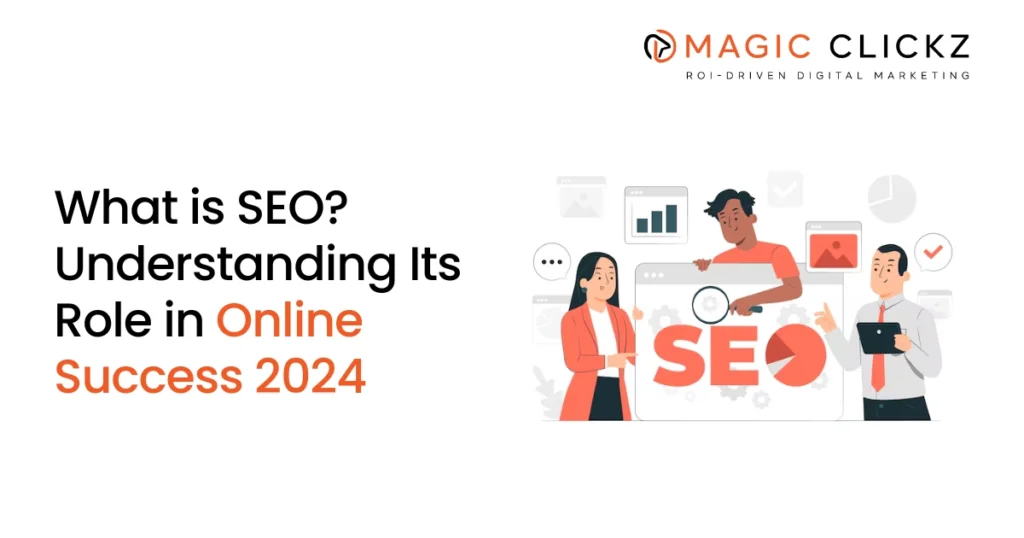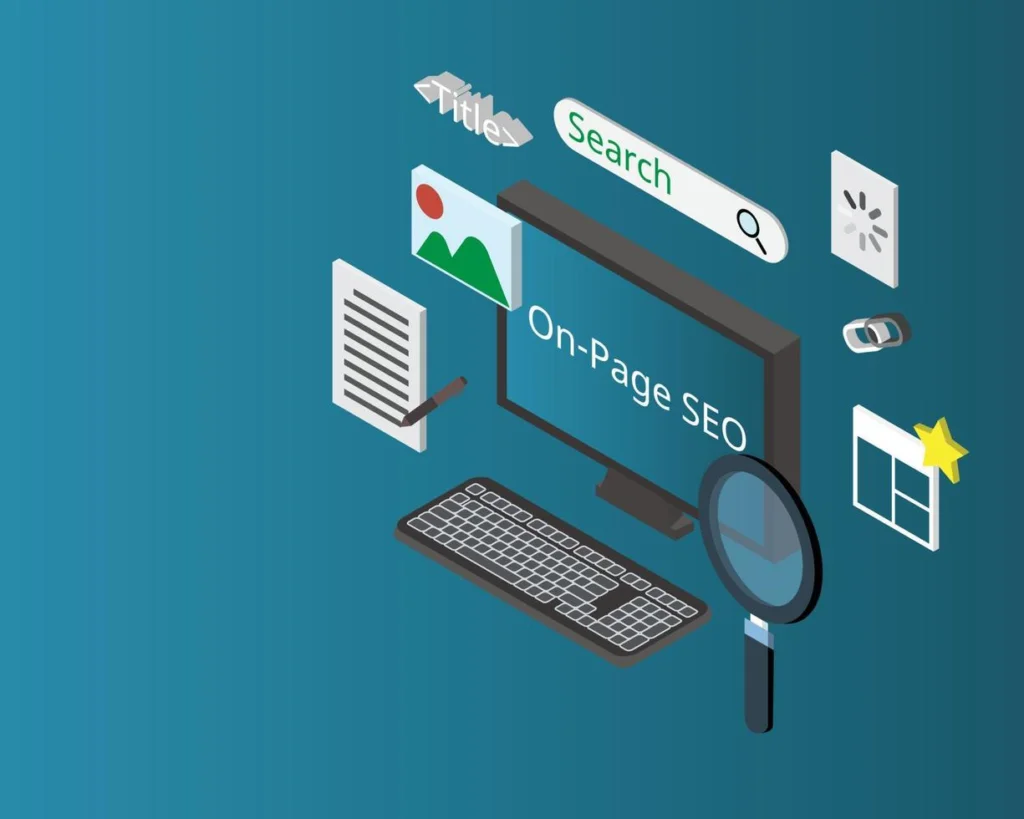
What is SEO? Understanding Its Role in Online Success 2024
Have you ever wondered why some websites appear at the top of Google search results while others get lost in the crowd? The answer lies in Search Engine Optimization (SEO). It’s the strategy that helps your website become more visible to potential customers by improving its ranking in search engines. Think of it as the foundation for your online presence, making sure people can actually find you.
But what is SEO, really? It’s not just about stuffing your site with keywords it’s a blend of techniques that ensure your site loads quickly, is easy to navigate, and provides valuable content that answers users’ questions. SEO touches everything from the way your site is structured to the quality of your content and the speed of your pages.
Unlock your website’s potential with effective SEO techniques! Discover how you can boost your search rankings and connect with more customers today
Table of Content
- What is SEO, Really?
- Why is SEO Important?
- Key Components of SEO
- SEO Best Practices
- Essential SEO Tools
- FAQs
SEO goes beyond the basic idea of merely stuffing your website with keywords. It’s a multifaceted strategy that encompasses various techniques designed to improve your site’s ranking in search engine results. A well-optimized website not only attracts visitors but also provides them with an exceptional user experience. This means your site should load quickly, be easy to navigate, and feature valuable content that effectively answers users’ questions.

At Magic Clickz, we’ll guide you through what is SEO, step by step, helping you understand the basics and beyond. Whether it’s keyword research, on-page optimization, or technical SEO, we’re here to make sure your site is fully optimized to reach the top. Let us help you unlock the full potential of SEO and take your business to the next level online!
Why is SEO Important?

The significance of SEO cannot be overstated. Here are some key reasons why SEO should be a cornerstone of your digital marketing strategy:
- Increased Website Traffic: Higher search engine rankings lead to increased visibility, resulting in more visitors to your website. It’s simple if your site appears on the first page, you’re likely to attract more clicks.
- Improved Brand Visibility: A well-optimized website enhances your brand’s reputation and awareness. When potential customers see you consistently ranking high, it builds trust and credibility.
- Better Lead Generation: More visitors can translate into more leads and potential customers. SEO helps you reach the right audience, turning casual browsers into engaged prospects.
- Higher Conversion Rates: By attracting qualified traffic users who are genuinely interested in your products or services you increase your chances of converting visitors into customers.
- Enhanced User Experience: Many SEO strategies focus on improving user experience, making your website more user-friendly and enjoyable for visitors.
Who Can Take Advantage of SEO?
Small Businesses: Local businesses can greatly benefit from SEO by optimizing their online presence to attract nearby customers. Local SEO strategies help them appear in local search results, driving foot traffic to physical locations.

E-commerce Stores: Online retailers can improve product visibility in search engines and attract more visitors through effective SEO services. Implementing strong keyword strategies and optimizing product pages are key to increasing sales.

Service Providers: Companies offering services (like plumbing or legal advice) can leverage SEO to reach potential clients searching for specific services in their area.
Bloggers and Content Creators: Content creators can use SEO techniques to enhance visibility, attract more readers, and grow their audience. Well-optimized blog posts can rank higher in search results, boosting engagement.

Nonprofits and Charities: Organizations focused on social causes can benefit from SEO by raising awareness of their missions, driving traffic to their websites, and attracting donations or volunteers.
Health and Wellness Professionals: Healthcare practitioners can improve online visibility and educate potential patients through valuable content optimized for SEO.
Educational Institutions: Schools and universities can attract prospective students by optimizing their websites to rank for relevant educational queries.
Travel and Hospitality Industry: Hotels and travel agencies can leverage SEO to attract travellers searching for accommodations and activities in specific destinations.
Real Estate Agents: Real estate professionals can optimize listings and content to attract buyers and sellers in their areas using SEO services.
B2B Companies: Businesses that sell to other companies can enhance their visibility and reach potential clients by optimizing content for industry-specific keywords.
Key Components of SEO
To effectively leverage SEO, it’s essential to understand its core components:
On-Page SEO

This refers to optimizing elements directly on your website. Key aspects include:
- Keyword Research: Identify relevant keywords and phrases that your target audience is searching for. This foundational step informs your content strategy.
- Keyword Optimization: Strategically incorporate keywords into your page titles, headings, meta descriptions, and content to enhance relevance.
- Content Creation: Produce high-quality, informative, and engaging content that meets the needs of your audience. Valuable content keeps users on your site longer and encourages shares.
- HTML Structure: Ensure your website’s HTML code is clean, organized, and search engine-friendly. This helps search engines crawl and index your site effectively.
- Image Optimization: Use descriptive file names, alt text, and appropriate sizes to ensure images contribute positively to SEO.
- URL Structure: Create clean, descriptive URLs that incorporate relevant keywords, making them more user- and search engine-friendly.
Technical SEO

This focuses on the technical aspects of your website to improve its crawlability and indexability by search engines. Key elements include:
- Website Speed: A fast-loading site enhances user experience and improves search engine rankings.
- Mobile-Friendliness: Ensure your website is accessible and usable on mobile devices, given the growing number of mobile users.
- XML Sitemap: Create an XML sitemap to help search engines understand your website’s structure, facilitating better indexing.
- Robots.txt File: Use a robots.txt file to instruct search engines on which pages to crawl and which to ignore.
- HTTPS Security: Implement HTTPS to secure your website, instilling user trust and potentially boosting rankings.
Off-Page SEO
This involves building external links to your website from reputable sources. Important aspects include:
- Backlink Building: Acquire high-quality backlinks from relevant websites, as they serve as endorsements for your content.
- Social Media Marketing: Promote your website and content across social media platforms to drive traffic and engagement.
- Local SEO: Optimize your website for local search results, crucial for businesses with physical locations.
- Citation Building: Ensure your business information is consistent across online directories, improving local search visibility.
Future Trends in SEO
SEO is a constantly evolving field, and staying updated with the latest trends is crucial for maintaining a strong online presence. Here are some key trends to watch out for in 2024 and beyond:

- Core Web Vitals: Google has introduced Core Web Vitals as a ranking factor, emphasizing the importance of page load speed, interactivity, and visual stability. Prioritizing these metrics will be essential for improving your website’s search engine rankings and enhancing user experience.
- Voice Search Optimization: As voice-activated devices become more prevalent, optimizing for voice search is becoming increasingly important. Focus on long-tail keywords and natural language queries to ensure your content is easily understood by voice assistants, enhancing your SEO strategy.
- AI and Machine Learning: Artificial intelligence (AI) and machine learning are being used to improve search engine algorithms. This means that content that is relevant, informative, and engaging will be rewarded, making it essential to create high-quality, SEO-optimized content.
- E-A-T (Expertise, Authority, Trust): Google has emphasized the importance of E-A-T in its search algorithm. This means that content created by experts, from authoritative sources, and that is trustworthy will be favoured in search results, enhancing your site’s credibility and visibility.
- Ethical SEO: It’s important to focus on ethical SEO practices to avoid penalties from search engines. Avoid black hat SEO techniques and prioritize creating high-quality, valuable content that aligns with Google’s guidelines.
By staying informed about these trends and implementing best practices in your digital marketing strategy, you can improve your website’s visibility and attract more organic traffic. Embrace these changes to enhance your SEO services and maintain a competitive edge in the ever-evolving digital landscape.
SEO Best Practices

To maximize your SEO efforts, keep these best practices in mind:
- Consistency: Maintain consistency in keyword usage, content quality, and link-building efforts for optimal results.
- Quality Over Quantity: Focus on creating high-quality content that offers genuine value, rather than simply stuffing it with keywords.
- Regular Updates: Keep your website’s content fresh and up-to-date to boost search engine rankings and engage users effectively.
- Mobile Optimization: Ensure your website is fully optimized for mobile devices, catering to an increasingly mobile audience.
- User Experience: Prioritize creating a positive user experience, making your site easy to navigate and providing valuable information.
- Track and Analyze: Use analytics tools to monitor your website’s performance, track keyword rankings, and measure the effectiveness of your SEO strategies.
Essential SEO Tools
Utilizing the right tools can significantly enhance your SEO efforts. Here are some popular options:
- Google Search Console: A free tool that helps you monitor your website’s performance in search results and provides insights for improvement.
- Google Analytics: This free tool tracks website traffic, user behaviour, and conversion rates, allowing you to make data-driven decisions.
- SEMrush: A comprehensive paid SEO tool that offers features like keyword research, competitor analysis, and backlink checking.
- Ahrefs: Another popular paid tool, Ahrefs excels in backlink analysis and offers robust features for optimizing your SEO strategy.
- Moz: This platform provides tools for keyword research, site audits, and link building, making it a valuable resource for SEO practitioners.
SEO CASE STUDY:
- Client: PR Foot & Ankle Surgeons
- Industry: Podiatry
- Challenge: Low organic traffic and poor search rankings
- SEO Strategy: Keyword optimization, blog creation, and backlink building
- Implementation Period: 3 months
- Key Results:
- Traffic Increase: New users up by 18.8%; overall traffic up by 17%
- Clicks & Impressions: Significant growth in both metrics
- Keyword Rankings: Achieved top page rankings across multiple locations in Nebraska, USA
Check out more case studies from Magic Click to see how we’ve helped clients grow their businesses!
FAQs About SEO
- How does voice search impact SEO strategies?
Voice search is becoming increasingly popular, requiring a shift in SEO strategies. This involves optimizing for conversational keywords, focusing on local SEO, and ensuring your content answers common questions succinctly. - What is the importance of mobile optimization in SEO?
Mobile optimization is crucial as search engines prioritize mobile-friendly websites in their rankings. A responsive design improves user experience and increases the chances of higher rankings. - How can I improve my website’s loading speed?
To improve loading speed, you can optimize images, leverage browser caching, minimize HTTP requests, and use a Content Delivery Network (CDN). Fast-loading sites enhance user experience and can positively impact SEO. - What is schema markup, and how does it affect SEO?
Schema markup is a form of microdata that helps search engines understand the context of your content. It can improve your visibility in search results and increase click-through rates by enhancing how your site appears in search engine listings. - How often should I conduct an SEO audit?
It’s advisable to conduct an SEO audit at least once a year, but more frequent audits (every 6 months) can help you stay on top of changes in search engine algorithms and user behaviour.
Take Your Business to New Heights with Expert SEO!
Are you ready to elevate your online presence? With over 15 years of experience, Magic Clickz, the best digital marketing agency, specializes in digital marketing services that enhance visibility and drive targeted traffic.
Our expert team employs proven strategies in SEO services, content marketing, and other digital marketing solutions tailored to your unique goals.
Don’t leave your success to chance!
Contact Magic Clickz today for a free consultation and discover how we can transform your website into a powerful traffic magnet.
Let’s unlock your full potential for the online success you deserve!


